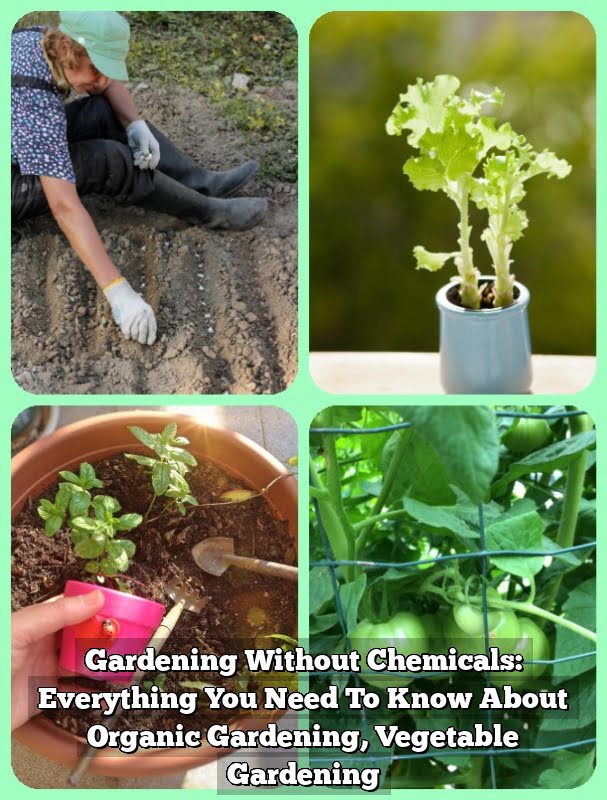The debate surrounding banning vegetable gardening is becoming increasingly prevalent in communities across the globe. As individuals and families seek sustainable and healthy alternatives to store-bought produce, clashes with local regulations and zoning laws have put this age-old practice under scrutiny. In this article, we delve into the multifaceted aspects of this growing controversy, examining its historical roots, benefits, case studies, arguments, legal implications, and community responses.
Vegetable gardening has been a longstanding tradition for many households, providing not only fresh and nutritious food but also fostering a sense of connection to the land. However, in recent years, various concerns have emerged regarding the practice. Issues such as environmental impact, conflicts with existing zoning regulations, and even aesthetic considerations are often cited as reasons for banning vegetable gardening in certain areas.
Despite these challenges, proponents of vegetable gardening argue for its numerous benefits. From improved health outcomes due to access to organic produce to promoting sustainability through reduced food miles and carbon footprints, there are compelling reasons to advocate for the right to grow one’s own food. This article will explore both sides of the debate surrounding banning vegetable gardening and shed light on the legal implications and community responses to this contentious issue.
Historical Perspective
Throughout history, vegetable gardening has played a crucial role in human civilization, providing communities with sustenance and fostering self-reliance. The practice of cultivating edible plants dates back to ancient times when early societies relied on growing their own food for survival. From the Hanging Gardens of Babylon to the kitchen gardens of medieval Europe, vegetable gardening has been an essential part of human existence.
The concept of vegetable gardening evolved over time as agriculture advanced, leading to innovations in techniques and tools that improved crop yields. In the 19th and 20th centuries, vegetable gardening became popular among households as a means of supplementing diets with fresh produce. Victory Gardens during wartime periods further highlighted the importance of growing your own food for both sustenance and national security.
As urbanization increased and industrialization took hold, vegetable gardening underwent a shift from being a necessity to a hobby for many individuals. However, the resurgence of interest in sustainable living and healthy eating has sparked a renewed enthusiasm for vegetable gardening in recent years.
With the rise of organic farming and community gardens, people are once again embracing the tradition of growing their own fruits and vegetables as a way to reconnect with nature and promote healthier lifestyles. The rich historical roots of vegetable gardening continue to inspire modern gardeners to cultivate their own plots of land, whether in backyard gardens or urban spaces.
Benefits of Vegetable Gardening
Vegetable gardening offers a myriad of benefits that contribute not only to individual health but also to the sustainability of our environment and the sense of community within neighborhoods.
Health Benefits
One of the primary advantages of vegetable gardening is the ability to grow fresh, nutrient-dense produce right in your own backyard. This means access to a variety of fruits and vegetables free from harmful pesticides and chemicals, leading to a healthier diet and overall well-being. Gardening also encourages physical activity, as tending to plants, weeding, and harvesting all require movement and exercise.
Sustainability
Growing your own food reduces reliance on commercially grown produce that often requires extensive resources and transportation. By cultivating vegetables at home, individuals can reduce their carbon footprint and contribute to a more sustainable food system. Additionally, vegetable gardens can serve as green spaces that support biodiversity, provide habitats for beneficial insects, and help mitigate climate change through carbon sequestration.
Community Building
Vegetable gardening has the unique ability to bring people together through shared interests in cultivation and harvest. Community gardens, in particular, foster relationships among neighbors by providing a space for collaboration, education, and social connection. From shared tools to seed exchanges, vegetable gardening promotes a sense of unity and cooperation within local communities.
In light of these substantial benefits, it is crucial for stakeholders to advocate for the right to engage in vegetable gardening without facing unnecessary restrictions or bans that hinder personal health, environmental stewardship, and community cohesion.
Case Studies
In recent years, there have been several instances around the world where local authorities have imposed restrictions or outright bans on vegetable gardening. One such case occurred in a residential community in California, where homeowners were prohibited from growing vegetables in their front yards due to concerns over property values and neighborhood aesthetics. This ban sparked a heated debate between proponents of individual freedom and those advocating for uniformity in landscaping.
Another notable example took place in a suburban area of Australia, where a family was fined for growing vegetables in their backyard without proper permits. The local government argued that the vegetable garden violated zoning regulations and posed a potential risk to surrounding properties. Despite receiving support from other residents in the community, the family was forced to uproot their garden or face further legal action.
Furthermore, in parts of Europe, there have been cases where vegetable gardens were banned in public spaces such as parks or community gardens. Officials cited environmental concerns such as soil contamination and pest infestations as reasons for prohibiting vegetable cultivation in these shared areas. These bans have led to grassroots movements advocating for the rights of citizens to grow their own food and challenging the restrictive policies imposed by local governments.
| Location | Reason for Ban |
|---|---|
| California | Property values and neighborhood aesthetics |
| Australia | Zoning regulations and risk to surrounding properties |
| Europe | Environmental concerns like soil contamination and pest infestations |
The Arguments Against Vegetable Gardening
Vegetable gardening has long been cherished by individuals and communities alike for its numerous benefits, ranging from improved health to sustainable living practices. However, in recent years, there has been a growing controversy surrounding the practice, with some municipalities even considering banning vegetable gardens altogether. This section delves into the arguments against vegetable gardening, focusing on environmental concerns, zoning issues, and aesthetics.
One of the primary arguments against vegetable gardening is rooted in environmental concerns. Opponents argue that certain gardening practices may lead to soil contamination, water pollution, or the introduction of invasive species. While these concerns are valid and should be addressed through proper education and regulations, outright banning vegetable gardening may not always be the most effective solution.
Zoning issues also play a significant role in discussions about banning vegetable gardening. Some municipalities have strict zoning laws that dictate what can or cannot be grown on residential properties. This can create barriers for individuals who wish to grow their own food but are restricted by zoning regulations. Encouraging dialogue between gardeners and local authorities can help find suitable compromises that address both safety concerns and the right to cultivate one’s own vegetables.
Furthermore, aesthetics are often cited as a reason for banning vegetable gardening in certain neighborhoods. Some argue that rows of corn or tomato plants can detract from the overall visual appeal of a community. However, with proper planning and design techniques, vegetable gardens can be integrated seamlessly into urban landscapes without compromising aesthetic values. By promoting creative solutions and community involvement, it is possible to strike a balance between beauty and functionality when it comes to vegetable gardening.
Legal Implications
Vegetable gardening has always been a cherished activity for many individuals, allowing them to connect with nature, improve their health, and contribute to a more sustainable lifestyle. However, in recent years, there has been a growing controversy surrounding the practice, with some communities considering or even implementing bans on vegetable gardening. Understanding the legal implications surrounding this issue is crucial in navigating these challenges effectively.
When it comes to vegetable gardening, laws and regulations can vary significantly depending on your location. Some cities or neighborhoods have strict zoning laws that regulate land use and may prohibit growing vegetables in certain areas. For example, residential areas may have restrictions on front yard gardens due to concerns about aesthetics or property values. Additionally, homeowners’ associations or local ordinances may also impose limitations on the size and location of vegetable gardens.
To better comprehend the specific legal implications of vegetable gardening in your area, it is essential to research and understand the existing laws and regulations governing land use. This can involve reviewing city ordinances, consulting with local officials or legal experts, and familiarizing yourself with any homeowners’ association rules that may apply. By being informed about the legal framework surrounding vegetable gardening, you can ensure compliance with relevant regulations and address any potential issues proactively.
In response to bans on vegetable gardening, many community members have rallied together to advocate for their right to grow their own food. This grassroots movement often involves organizing petitions, attending city council meetings, and raising awareness about the benefits of vegetable gardening. By actively engaging with local authorities and stakeholders, gardeners can demonstrate the value of this age-old practice and work towards finding common ground that allows for sustainable gardening practices within communities.
Community Responses
Despite the growing trend of municipalities considering or even implementing bans on vegetable gardening, many gardeners and community members are fighting back against these restrictions. In various cities and towns worldwide, individuals are organizing petitions, attending town hall meetings, and forming advocacy groups to protect their right to grow fresh produce in their own yards. These grassroots efforts aim to raise awareness about the benefits of vegetable gardening and push for more lenient regulations.
One powerful tool that gardeners are utilizing in response to the banning of vegetable gardening is education. By hosting workshops, distributing informational pamphlets, and offering hands-on demonstrations, proponents of homegrown produce are able to showcase the positive impact of cultivating one’s fruits and vegetables. Additionally, some community members have taken to social media platforms to share their stories and connect with like-minded individuals who believe in the importance of sustainable food practices.
Furthermore, a key aspect of the resistance against banning vegetable gardening lies in fostering partnerships within the community. By collaborating with local businesses, schools, and organizations, gardeners can amplify their message and create a united front against restrictive ordinances. Through collective action and solidarity, these advocates hope to influence policy changes that support rather than hinder the practice of growing food at home.
| Gardening Movement | Impact |
|---|---|
| Educational Workshops | Raising awareness about benefits of vegetable gardening |
| Social Media Campaigns | Connecting with supporters and sharing success stories |
| Community Partnerships | Building a strong network for advocating against bans |
Conclusion
In conclusion, the controversy surrounding the banning of vegetable gardening raises important questions about personal rights, sustainability, and community resilience. As discussed in this article, vegetable gardening has a rich historical background and numerous benefits, including promoting health, providing fresh produce, and fostering a sense of community. However, there are instances where local regulations or zoning ordinances have led to restrictions or outright bans on this fundamental practice.
While concerns about environmental impact, property aesthetics, and potential zoning conflicts are valid considerations in the debate over vegetable gardening regulations, it is essential to find a balance that respects individual freedoms and promotes a sustainable future. Communities around the world have demonstrated their commitment to preserving the right to grow their own food by advocating for policies that support urban agriculture and community gardens.
As we look towards the future of vegetable gardening, it is crucial for policymakers, urban planners, and community members to engage in meaningful dialogue to address these complex issues. By prioritizing collaboration and innovation, we can work towards creating environments that support and encourage vegetable gardening while also addressing legitimate concerns about land use and environmental impact.
Ultimately, advocating for the right to grow our own food is not just about cultivating crops – it is about nurturing communities and promoting a healthier, more sustainable way of life for all.
Frequently Asked Questions
Is It Illegal to Grow Vegetables in Your Backyard in California?
It is not illegal to grow vegetables in your backyard in California. In fact, the state passed the California Homemade Food Act, allowing residents to sell certain homemade goods, including produce from their gardens.
What States Have a Right to Garden Law?
States that have a Right to Garden Law include Maine, Minnesota, Oklahoma, and Kansas. These laws protect individuals’ rights to grow their food on private property without unreasonable restrictions imposed by homeowners’ associations or local ordinances.
Is It Safe to Eat Vegetables Grown in Backyard?
Eating vegetables grown in your backyard can be safe as long as proper care is taken during planting and harvesting. Be mindful of using organic fertilizers, avoiding pesticides, and washing the produce thoroughly before consuming it to minimize any risks associated with contamination.

If you’re looking to get into vegetable gardening, or are just looking for some tips on how to make your current garden better, then you’ve come to the right place! My name is Ethel and I have been gardening for years. In this blog, I’m going to share with you some of my best tips on how to create a successful vegetable garden.





